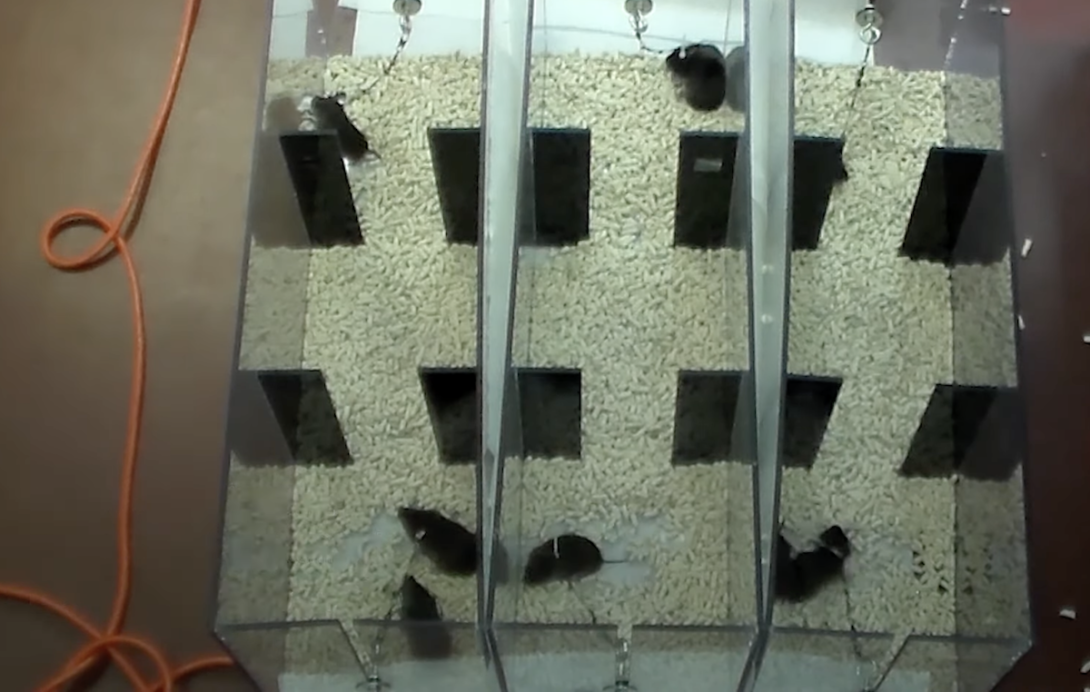
A judge has ordered Oregon Health & Science University to pay nearly half a million dollars in attorneys fees to People for the Ethical Treatment after the group successfully sued the university for withholding videos of drunken voles.
The ruling caps years of friction between OHSU and the animal rights group over the Portland university’s use of animals in experiments and studies.
Multnomah Circuit Judge Andrew Lavin on Friday awarded $432,990 in attorneys fees to the animal rights group to cover its legal costs during a two-year lawsuit that forced the university to release animal experiment videos and other documents. PETA has since compiled and edited the videos for YouTube.
The attorney fees dwarf the pair of $200 penalties Lavin issued to the university a year ago after finding the university illegally delayed disclosing animal experiment videos requested by PETA in 2018.
Lavin wrote in his ruling that while the case resulted in a comparatively small fine for the research university, “both sides devoted extensive efforts and expense to litigate this case, demonstrating the importance to the parties of the underlying factual and legal issues.”
“Moreover, the public also has a substantial interest in how those same issues are resolved by the court,” wrote Lavin.
PETA responded to the ruling with a statement on its website calling the order a “resounding victory for transparency and accountability.”
“OHSU will now have to pay the price for trying to hide its violent torture of drunken voles,” said Dr. Alka Chandna, PETA’s vice president of laboratory investigation cases.
A spokesperson for Oregon Health & Science University declined to comment on Lavin’s order and whether it planned to appeal. Instead, the spokesperson referred The Lund Report to a statement the university issued last year defending its animal research and stressing its commitment to its public records obligations.
PETA in 2020 sued the university for withholding videos of experiments conducted on prairie voles that the group had requested under Oregon Public Records Law. The records request centered on OHSU research examining the effects alcohol has on the social bonds of voles, which form monogamous bonds and care for offspring together.
The university’s web page states that the research “identified two biological mechanisms in the brains of voles that may be responsible for heavy drinking and associated relationship problems.” PETA, on its web page, described the experiment as cruel and stated that they reveal “nothing about men who drink and cheat on their partners.”
OHSU eventually disclosed the videos, chalking up the delay to an honest mistake and faulty memories of researchers. However, Lavin called it an “undue delay” by the university. The judge also determined that university police had kept information on PETA in violation of a state law that prohibits law enforcement from monitoring political activities that aren’t related to a crime.
“Just as the public records issues in this case were significant, the fees that PETA incurred in litigating them were substantial — and PETA’s requested fee award reflects the reality of two years of hard-fought litigation,” attorneys with Angeli Law Group, the firm representing PETA, wrote in a filing.
Attorneys for Perkins Coie, the law firm representing the university, argued in a court filing that the hefty legal fees PETA sought were unreasonable considering the relatively small fines, and were not supported by Oregon Public Records Law. Attorneys further argued that OHSU produced the records and that PETA was seeking attorney fees unrelated to the case.
“PETA was given an inch, and now it asks for a mile,” reads the filing. “On the basis of its limited victory, PETA seeks to recover almost a half million dollars in costs and fees it incurred litigating the entire case. PETA is not entitled to this windfall recovery of taxpayer dollars from a public teaching hospital.”
While Lavin sided with PETA, he did not order the university to pay $9,550 in expert fees for the animal rights group nor the $6,000 it requested in legal fees it expected after the judgment. Lavin also denied a request from the university to order its former law firm to pay the fees.